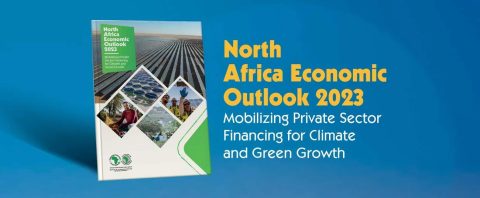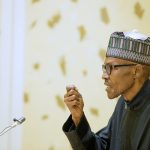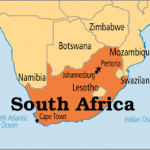Prioritize Green Growth, AfDB Urges Northern African Countries
Business News, Latest Headlines Friday, July 28th, 2023
(AFRICAN EXAMINER) – African Development Bank (AfDB) Group has urged countries in the northern part of Africa to make green growth an urgent regional priority.
The AfDB also harped on the need for the North African governments, foreign and domestic private investors, multilateral development banks and development finance institutions, as well as the private sector, to invest in green growth.
According to the Pan-African financial institution, private-sector financing, in particular, can play a crucial role by investing in green energy infrastructure, energy efficiency, sustainable agriculture and land restoration.
The bank further observed that the private sector can also provide the expertise, technology and management skills needed for effective and efficient implementation of green development projects.
“North African countries should therefore invest in the sustainable management of natural capital to create an additional financing option for climate-related and green growth initiatives, which will contribute to reducing poverty and inequality, and supporting job creation and sustainable economic growth”, the bank stressed in its 2023 North Africa Economic Outlook report released on Thursday.
The report was published under the theme “Mobilizing Private-Sector Financing for Climate and Green Growth in Africa”.
The North Africa Economic Outlook report, published since 2003, is one of the bank’s flagship publications.
It emphasizes that the AfDB Group and other development partners have a crucial part to play in optimizing the role of the private sector and natural capital in financing climate actions and green growth in North Africa.
Senior figures from government, national and regional institutions, the private sector, researchers, academics and the media attended the launch of the report, which took place at the bank Group’s regional headquarters and was accessible via videoconference.
The report also urged countries in the region to continue efforts to implement reforms to tackle the challenges of budget consolidation, particularly by improving the digitisation of the tax administration system, expanding the tax base, rationalizing public spending and strengthening governance systems.
“North Africa should also strengthen its implementation of the African Continental Free Trade Area to stimulate intra-African trade and investments. Furthermore, North African governments should tackle the growing levels of public debt in the medium term by allocating debt funding transparently, restructuring public corporations that are in difficulty and undertaking regular reviews of public spending”, the report added.
It also recommended coordinating monetary and budgetary policies to keep the region’s economies afloat, tackle higher inflation and protect small businesses and populations through targeted public spending.
“Similarly, maintaining and supporting food security in the region is a critical objective. Countries in the region should invest in agriculture, in particular by developing improved varieties alongside water and soil management strategies. The region must strengthen its resilience, especially regarding linkages between the energy transition, water management and food security” the report further suggested.
Meanwhile, North African countries are projected to see a slight increase in economic growth to 4.6 percent in 2023 and 4.4 percent in 2024, and should make green growth an urgent priority.
Notably, growth in the region is essentially driven by the service sector, particularly trade and tourism. Growth in North Africa in 2022 was moderate: 4.1 percent compared with 5.4 percent in 2021.
Inflation in the region is set to climb into double digits–14.2 percent–in 2023, before falling to 6.9 percent in 2024. The regional budget deficit should continue at around 3.5 percent of gross domestic product (GDP) in 2023 and 3.2 percent in 2024.
The region’s balance of payments deficit is expected to fall to 0.5 percent of GDP in 2023 and 0.2 percent in 2024. The global economic environment, including the price of fossil fuels, the structure of trade, tourism and foreign direct investments, will influence the region’s external position.
AfDB’s Group Regional Economist for North Africa and interim head of the Country Economics Department for Central Africa, North and West Africa, Audrey Verdier-Chouchane, who presented the report, said there are however, significant disparities between countries in terms of the rate of growth.
“To sustain inclusive growth, the region should implement structural reforms that support the development of the private sector, improve productivity and employability, and create job opportunities”, she stressed.
Related Posts
Short URL: https://www.africanexaminer.com/?p=89691






















